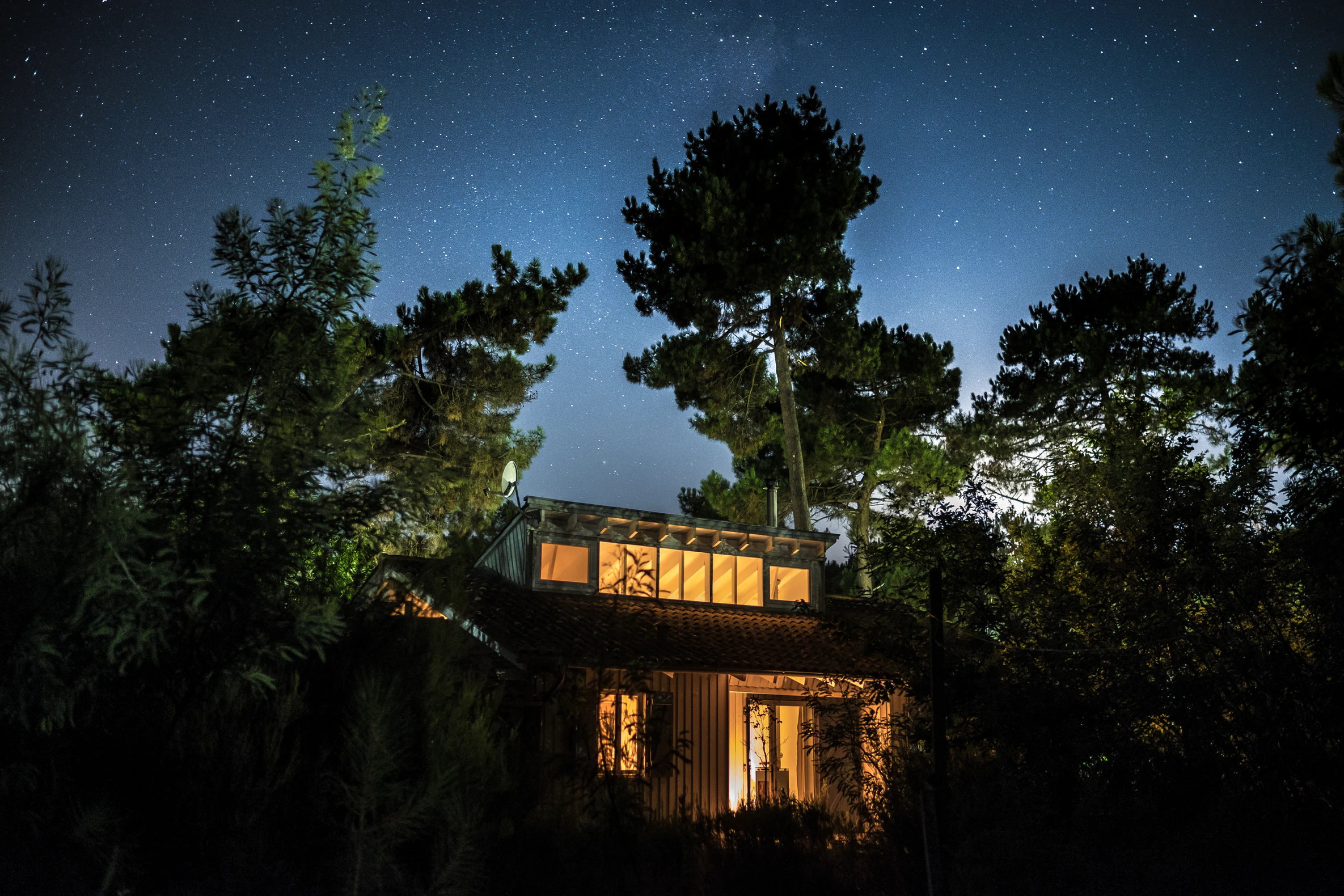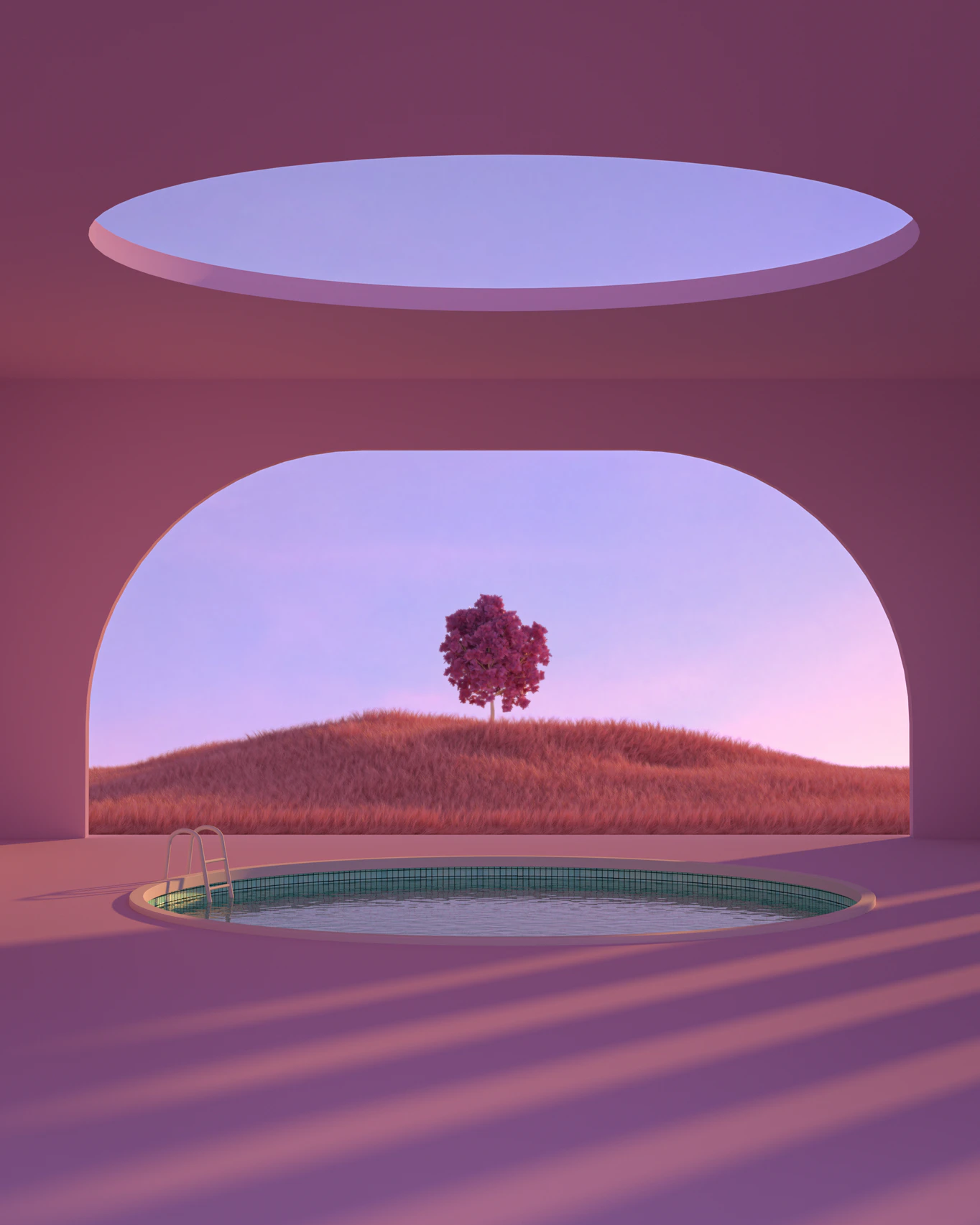Why Build the Metaverse?

"Metaverse" is the buzzword of 2021. What is it? Is it good? How can it be made?
"Metaverse" is used almost like an emotion. The term is used to describe a myriad of concepts loosely connected by a belief that technology will become even more dominant in the future.
To technologists and futurists the metaverse is almost a religious concept. A place, like heaven, that they need to bring into reality.
But what is it really?
Most people envision the metaverse as interconnected 3D environments populated by people with customized avatars. Often the metaverse is associated with virtual reality.
The catch is that the metaverse believers won't call something the metaverse unless it's nearly as successful as the internet itself.
It's a concept that's been attempted numerous times before. Each attempt gives enthusiasts pause for a few years, but eventually they come back with more resolve. The idea is simply too alluring to give up entirely.
Now, in 2021, the metaverse has more hype than ever. Facebook (recently renamed Meta) is prepared to focus their entire company's efforts on the metaverse. At the very least lots money will be spent.
Is it all empty hype?
No. I think a 'metaverse' can become a new medium with enormous positive potential.
Imagine:
- Building your own virtual tree fort and inviting friends over to watch a movie.
- Being led on a tour through a virtual museum.
- Designing a laser tag arena and hosting a friendly tournament with your peers.
- Attending group study sessions where you can fly through the human body.
- Learning to code by making a bubble machine and giving it to a friend for their room.
- Modeling tropical plants and selling the models for people to decorate their virtual homes with.
- Working remotely with an interior designer on a floor-plan
- Designing a 3D presentation for a metaverse-hosted conference
In the metaverse people can learn, form communities, play with friends, and express their creativity.

What makes the Metaverse special?
Inherently Multiplayer
The metaverse will allow any experience to become multiplayer.
Need somewhere to organize a project? Invite your group to your tree fort and poof a whiteboard into existence.
Want help designing a room? Invite a friend.
Curious about a new metaverse museum? Join a tour group.
Today's websites and apps require complex code to get this sort of experience and there's no standardization for how it works.
Composable
In the metaverse you can design and code a butterfly that flies around a room and lands on furniture. You can give a copy of your butterfly to a friend and they can let it flutter in their island garden.
Metaverse users will be able to safely populate their room with items created by other people. Today's apps and web experiences are built, for security reasons, with the assumption that each page and app is created by one entity.
The metaverse can't have that limitation, and will have to make different technical tradeoffs in order to make composable content possible.
Universal Market
The metaverse will create a huge market for products with small scope.
There are vast numbers of indie game devs today and they have exactly the skills needed to make games, items, and rooms for the metaverse.
A skilled 3D modeler could spend a weekend creating a few pieces of furniture for the store.
I had a taste of this as a kid when I played a now defunct 2D metaverse-like game called "Whirled". After learning Flash I made an avatar and put it on the store. Soon I had a dozen avatars and a few items for sale, and some decent Flash skills.
It was an intoxicating experience, but in a good way. Providing creators an audience that is interested in projects of a smaller scope lets creators iterate faster and learn quicker.
Frictionless Exploration
In the metaverse visiting a new experience will be as simple as stepping through a portal or accepting an invite from a friend.
Metaverse content will be designed, like the web, to avoid long download times. Unlike the existing web the transition can be made seamless. You'll be able to use portals to travel between locations with your friends
For some simply exploring the links between worlds will be a joy. Journey through the strange and eclectic until your find yourself in a "history of cheese" exhibit built inside a cheese castle.
Content creators and players will benefit from how easy it is to discover new content.
Standardized Interactions
Metaverse browsers, like web browsers, will have common controls that work across multiple experiences.
There will be standard ways to favorite locations, invite friends, message other people, browse your inventory, change clothes, etc.
Unlike today's games each metaverse experience won't require relearning the same basic methods of navigation and interaction.
Why will it work now?
Gaming is bigger than ever
Gaming is huge now. Most people play games and are familiar with how they work. Players will innately get the interactions the metaverse will use because they're similar to those used in games.
Multiplayer gaming is dominant and gamers often expect multiplayer in their games. Players want more multiplayer content and a metaverse can make it easier to create, distribute, and find an audience for that content.
Virtual Reality is affordable and pretty good
The metaverse doesn't require virtual reality, but it certainly is cooler with it. Many of the most passionate metaverse users and creators will use virtual reality. VR captures elements of social interaction that staring at a screen does not.
Virtual reality makes the metaverse just a bit more cool for enthusiasts. And there are likely massive technological improvements in the pipeline for virtual reality.
Eye-tracking combined with AI upscaling techniques will allow for more realistic graphics. Further hardware development will lead to more comfortable devices that aren't such a headache to wear.
I'm of the opinion that small incremental comfort and fidelity improvements will have a massive impact on VR adoption. I don't think VR is truly great yet. Today's virtual reality headsets are good for some but they're still uncomfortable and clunky for many. That will improve and as it does the audience of people longing for something like the metaverse will grow.
The world is more remote
Even before the pandemic people were increasingly keeping in touch with friends through video calls or playing online games together.
Companies are figuring out how to make businesses work when coworkers are hundreds of miles apart. Communities have formed in Discords with people from countries all over the world.
Virtual social spaces that can serve these distributed communities in more engaging and immersive ways are long overdue.
Indie devs have the skills
There is a massive pool of indie developers making games today. They're wildly skilled but competing in a cut-throat market with hundreds of games released a day.
Something incredible will happen when indie developers are given an audience, a new creative medium, and ownership of their work.

Why have past metaverse attempts failed?
Not sufficiently compelling
The biggest reason metaverse-like things fail is they aren't interesting. Historically tech companies have been bad at understanding what makes games good. What makes an experience fun, interesting, or engaging is hard to pin down and very much subjective.
Starting from a kernel that's definitely engaging is much better than trying to create a grand infrastructure and populating it later.
Rec Room's sports are a fantastic example. They made games, like VR paintball, that people really wanted to play and they're growing the rest of the metaverse out from that.
For a period I thought Google would add the ability to create rooms and portals between Google Blocks and Tiltbrush content. If they gave the community of VR artists the ability to instantly make their creations social and interconnected they'd instantly have something cool that drew people in. That would have been a great kernel to start from!
Standing in a room with people you don't know and nothing to do is typically more awkward than fun. Ensure people have something to do that they enjoy and then build from there.
Jank
Most past metaverse attempts are undeniably janky. Anything that gives creators powerful creative freedom will lead to jank; it can't be entirely prevented. But there are avoidable forms of jank that past metaverse attempts have unfortunately floundered in.
- User interfaces should be clean and readable, like the web browsers we're used to.
- Graphics should use relatively modern rendering techniques.
- Default assets should be high quality to give show the community what level of quality is possible.
- Default avatars shouldn't be off-putting. Don't make a scary alien or a strange robot the default.
Lack of true ownership for creators
Most metaverse attempts have been built on proprietary infrastructure.
Sometimes there's an opportunity to make money, but only if you create within the parent company's rules. The understanding is that they'll make most of the money and you might be able to make some.
If creators don't feel that they really own their work then a large class of creators won't be interested. Entrepreneurs who want to make the next big startup won't want to build a product that could instantly be squashed by the metaverse's master.
A metaverse should feel like a raw material. You can't be betrayed by a raw material, it doesn't innately serve someone. You can be confident you can build great things that you own when you're building with raw materials. HTML, HTTP, CSS, etc. are all raw materials. The metaverse needs to be a material, not a product.
Nobody wants to toil in charity to a megacorp.
Too Rigid
The metaverse is too multifaceted and too fuzzy for a monolithic company to lay the groundwork in one shot. An effort to make a metaverse will be laced with mistakes. For a metaverse to work it needs to be iterated on, bent, and broken repeatedly by many parties. Eventually, like the web, common patterns will emerge that will become the foundation.
Close-sourced platforms built by one company do not have enough ability to rapidly adapt and experiment.
Similarly standard committees cannot anticipate how a metaverse will be built. It's a doomed task to attempt to predict the future of the metaverse and create standards for it before it begins.
Will the metaverse be the future of tech? It's hard to say, but it has the potential to be huge.
A metaverse has a chance to attract a significant chunk of gaming, remote collaboration, and education markets. Even a metaverse that's a fraction of the prophesied success would be massive.
Is it even possible to build something like the metaverse? I think so.
In my next post I'll detail my best plan for building an open metaverse.
